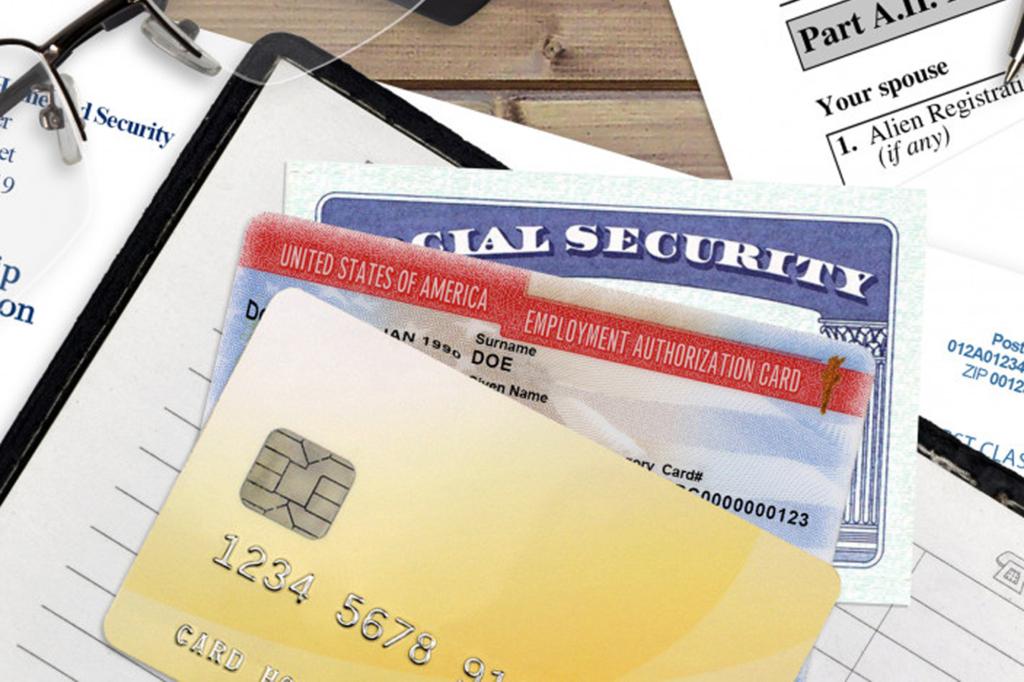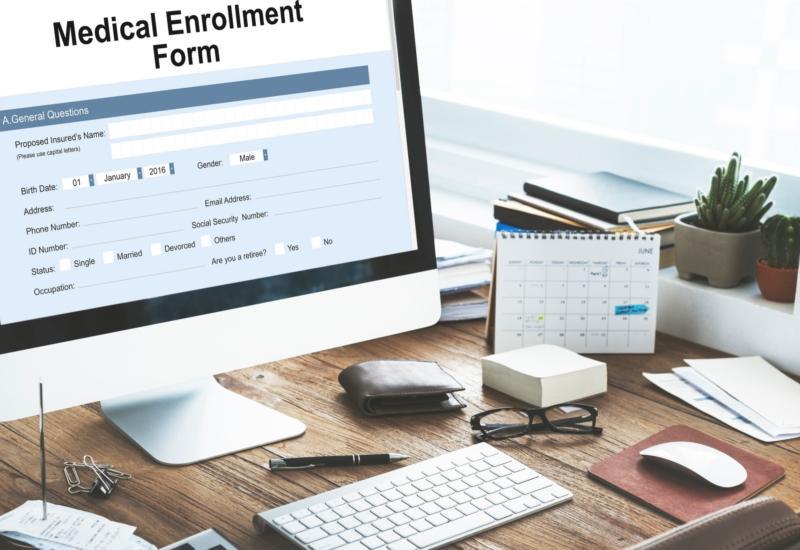Start Building Your Child’s Credit
In today’s digital age, where data breaches have become commonplace, you might be wondering—is your Social Security number on your medical records?
This question is not only more commonplace than you think but also crucial in the realm of personal data security. Your medical records contain a trove of sensitive information that makes them a potential target for identity theft and unauthorized access, including vital personal details. This comprehensive guide will discuss whether medical records include Social Security numbers (SSNs), the risks associated with that practice, and the steps you can take to protect your data.
Why Do Medical Providers Require Your Social Security Number?
In the (sometimes tumultuous) landscape of healthcare providers, ensuring accurate patient identification, smooth operational processes, and financial transparency is paramount for patient well-being. Here’s why healthcare providers often request your SSN:
- Unique identification
- Insurance and billing
- Compliance with regulations
- Fraud prevention
Unique Identification
Given that common names can result in mix-ups, using an SSN aids in positively identifying patients. This helps ensure that medical records are accurate and that the correct patient is associated with the correct medical data and billing information. Maintaining an accurate record system prevents errors in your treatment and facilitates smooth interactions between different departments or healthcare facilities.
Insurance and Billing
Healthcare providers use your SSN as an identifier when communicating with insurance companies, ensuring that billing and payment processes are carried out smoothly and accurately. Your SSN is also crucial in billing and following up on payments. Some people may fail to settle their bills, leaving hospitals and healthcare practitioners with limited options when they can’t reach out to their patients. Unfortunately, unpaid medical bills are a reality, and healthcare providers might use SSNs to forward unpaid bills to collection agencies or take legal action if necessary.
Compliance With Regulations
Providing an SSN is typically mandatory for individuals who have Medicare or Medicaid to ensure eligibility and accurate billing. In certain instances, healthcare providers are legally obligated to obtain and record your SSN, such as in cases when services are mandated to be reported to the government.
Fraud Prevention
In an era where healthcare fraud isn’t uncommon, utilizing SSNs for identity verification becomes vital in ensuring healthcare services are being provided to the rightful patients. By verifying the identities of individuals using the services, healthcare providers help ensure that the correct people have the right resources and aren’t utilizing someone else’s healthcare services or benefits.
Do Medical Records Have a Social Security Number?
Whether medical records will include your SSN depends on a number of factors, including your healthcare provider, the state where the care takes place, and the reason for the care.
In the past, it was common for healthcare providers to include SSNs on medical records. However, due to increasing privacy concerns and the risk of identity theft, many healthcare organizations have transitioned away from using SSNs as patient identifiers. In modern electronic health records (EHR) systems, the use of SSNs for patient identification has been largely phased out in favor of unique medical record numbers or other forms of patient identification. This change is aimed at enhancing patient privacy and security.
Potential Risks of Having Your SSN on Your Medical Records

The inclusion of your SSN in your medical records can pose several potential risks, including:
| Risk | Description |
| Identity theft | If unauthorized individuals gain access to your medical records containing your SSN, they can use it for opening new credit accounts and taking out loans in your name or even filing fraudulent tax returns |
| Medical fraud | Someone could use your SSN to obtain medical care in your name without your knowledge or consent. This could lead to inaccurate medical records, which could make it difficult for you to receive the care you need. It could also lead to financial problems, as you may be billed for medical services that you never received |
| Insurance fraud | Identity criminals might use your SSN to make false insurance claims, which could affect your insurance premiums and overall financial stability |
Do You Have To Give a Hospital Your Social Security Number?
While it might seem compulsory, you often have the right to withhold your SSN from medical services. However, this might complicate certain processes, especially those related to billing or insurance. If you’re hesitant to share your SSN, consider these strategies instead to safeguard against identity theft:
- If possible, pay for healthcare services in cash upfront. While most providers may consent to this, they might decline if they believe verifying your medical records without identity confirmation poses a challenge
- Offer your healthcare insurance card and medical identification number, and grant access to your medical records. This will assure providers of pending payment and verify the accuracy of available medical records
- Ensure that your responses to any questions are conveyed privately and away from the unnecessary attention of other patients or staff members nearby
- Meticulously monitor your medical bills and payments. Establish an online account with your healthcare provider or insurer to facilitate effective tracking of all billing and payment activities
How To Protect Your SSN on Medical Documents

While your SSN is necessary for many transactions and interactions, it’s essential to understand the potential risks associated with its use. The consequences of identity theft can be devastating, leading to financial losses, damaged credit, and considerable stress. Here are five ways to ensure the safety of your SSN in the context of healthcare:
- Limit the sharing of your SSN
- Secure storage and disposal
- Use secure communication channels
- Adopt advanced security measures
- Monitor your records
Limit the Sharing of Your SSN
Before sharing your SSN on any medical document, ask why it’s required. Healthcare providers might ask for it, but providing it might not always be compulsory. Request to use alternative identifiers whenever possible—some establishments might accept other forms of identification, such as patient ID numbers. Ensure you read the healthcare provider’s privacy policy and understand how your SSN will be used and protected. Only provide your SSN to known and verified entities, and beware of fraudulent activities or scams requesting your personal information.
Secure Storage and Disposal
Store paper documents containing your SSN in a secure place, such as in a locked file cabinet, and avoid leaving them in easily accessible areas. When disposing of medical records, use a cross-cut shredder to minimize the risk of information being pieced back together. If documents are stored digitally, ensure they’re in encrypted folders and protected by strong, unique passwords.
Use Secure Communication Channels
Ensure that any digital communication involving documents containing your SSN is conducted over secure, encrypted channels. Rely on secure mail services, and consider sending sensitive documents through registered mail to keep track of them. When sharing your SSN verbally, ensure that the conversation can’t be easily overheard, and confirm the identity of the person you’re speaking to first.
Adopt Advanced Security Measures
Ensure that any device used to access or store medical documents containing your SSN is protected with reliable security software. You can also consider using a virtual private network (VPN) to encrypt your internet connection, particularly when accessing or transmitting sensitive data.
Monitor Your Records
Periodically check your medical and financial records for any inaccuracies or unauthorized activities. Regularly review your credit reports for any suspicious activities that might indicate that your SSN has been compromised. You can also set up alerts for any unauthorized access to your medical records or use of your SSN.
To ease the burden of regular monitoring, consider signing up for identity monitoring services like FreeKick, which offers round-the-clock surveillance of sensitive information, including SSNs. Children are especially vulnerable to identity theft—in fact, every 30 seconds, a child has their identity stolen. To reduce this risk, FreeKick gives you access to a comprehensive set of identity protection features for your whole family.
Never Fall Victim to Identity Theft With FreeKick
With a child’s identity being stolen every 30 seconds, this crime is more common than you might think—and it’s important to take every precaution you can. That’s where FreeKick by Austin Capital Bank comes in—it’s a two-in-one platform that protects your family’s identities and helps build credit for your children.
How FreeKick Protects Identity
FreeKick offers multiple identity protection features for both adults and minors. For you and your adult children, FreeKick offers the following services:
- Credit profile monitoring
- SSN monitoring
- Dark web monitoring for personal information
- Up to $1 million identity theft insurance
- Full-service white-glove concierge credit restoration
- Lost wallet protection
- Court records monitoring
- Change of address monitoring
- Non-credit (Payday) loan monitoring
- Free FICO® Score monthly
- FICO® Score factors
- Experian credit report monthly
For minor children, FreeKick offers:
- Credit profile monitoring
- Social Security number (SSN) monitoring
- Dark web monitoring for children’s personal information
- Up to $1 million identity theft insurance
- Full-service white-glove concierge credit restoration
- Sex offender monitoring—based on sponsor parent’s address
How FreeKick Builds Credit
Once you’ve secured your family’s identities, it’s time to think about their financial future.
With FreeKick’s credit building service, which is available for children aged 13 to 25, you can give your child up to five years of credit history once they turn 18. This will help them save $200,000 during their lifetimes by giving them access to more favorable loan terms and other financial perks.
You have to take three steps:
- Create an Account—Go to FreeKick.bank, sign up for an account, and choose a deposit amount you’re comfortable with
- Set It and Forget It—FreeKick will automatically start building 12 months’ worth of credit history for your children
- Keep Growing—After 12 months, you can close the account without any fees or continue building credit for your family for another year
FreeKick Pricing
FreeKick offers flexible pricing. There are two plans you can choose from:
| FDIC-Insured Deposit | Annual Fee |
| $3,000 | $0 (Free) |
| No deposit | $149 |
Each plan offers:
- Credit building for six children aged 13 to 25
- Identity protection for two parents and six children aged 0 to 25
Protect your family from identity theft and financial hardship—sign up for FreeKick today.

Freekick provides a double dose of financial empowerment and security for your whole family. It helps teens and young adults build strong credit profiles and offers identity motoring for up to two adult parents and six children under 25.





